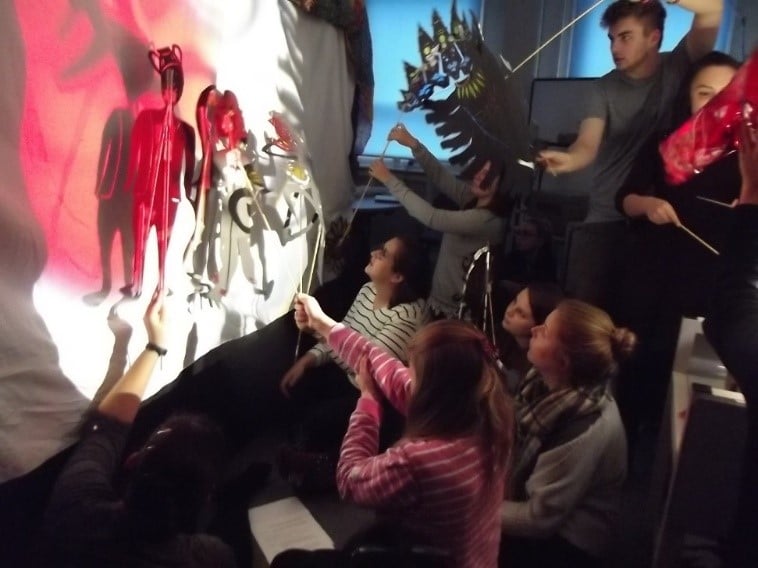
Student teachers learn the value of arts in education
BY: Guest Writer
02 Dec 2019
We hear from Maria Vinney, Arts Award adviser and Senior Lecturer in Art and Design at the University of Winchester, about how Arts Award has been integral in enriching their teacher education offer and empowering the next generation of teachers.
As a former primary school headteacher of three Artsmark Gold schools, and now senior lecturer in Art and Design, I’ve always been a passionate believer in the power of the arts to transform and enrich people’s lives. Recognised by Ofsted as an outstanding provider of teacher education, I want to ensure that as many of our students as possible finish their degree understanding, but also being able to articulate, just how vital the arts are in children’s education and development.
We know that in a result driven climate, the balance in the primary curriculum isn’t always right, something Ofsted is trying to address. As William Cameron said in 1963 “Not everything that counts can be counted and not everything that can be counted counts.” So, at the University of Winchester we are committed to ensuring new teachers entering the profession appreciate the crucial role the arts play in supporting children’s positive mental health and well-being.
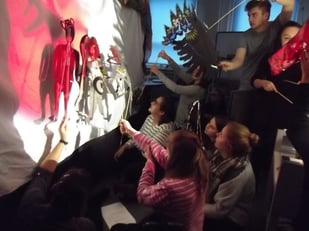 Students often choose to take the Arts Award option module because they want to broaden their experience and feel more confident teaching the arts. It can be quite a daunting prospect for this group of students because they are not sure what they will be tasked with doing. One year, the students decided to plan a surprise flash mob in the university dining hall, much to the surprise of staff and other students. One student said, about participation in the event, that it was scary, but also exciting and one of the best things they’ve done at university.
Students often choose to take the Arts Award option module because they want to broaden their experience and feel more confident teaching the arts. It can be quite a daunting prospect for this group of students because they are not sure what they will be tasked with doing. One year, the students decided to plan a surprise flash mob in the university dining hall, much to the surprise of staff and other students. One student said, about participation in the event, that it was scary, but also exciting and one of the best things they’ve done at university.
Of course, there are also students who already have experience in one area of the arts and are keen to develop their skills and expertise in other areas. We’ve recently begun to offer the module to students who specialise in art and design and, based on the success of this, we plan to extend this to music specialists later this year.
The module we offer enables students to achieve their Bronze Arts Award. I always begin by asking the students to think about their own experience of the arts: with their family and friends, at home and in education. Without fail, they’re surprised at just how many connections with the arts they already have. We go on to look at research around the arts, find out about various arts organisations and how the arts are incorporated into education globally. This is a powerful starting point, rather than just considering the evidence and talking about the power of the arts in transforming people’s lives, the students get to feel and experience this for themselves.
Over eight sessions, they take part in a series of different workshops across the arts, including a drama- based workshop linked to a performance at the Nuffield Theatre in Southampton. Where possible, I focus on a performance aimed at children so the students can see the learning potential of bringing their future class to the theatre.
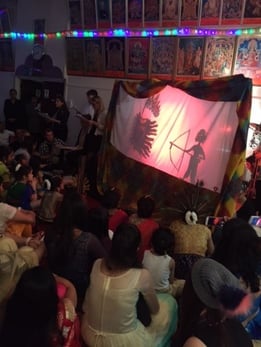 As the module happens in the Autumn term I’ve used Diwali as the focus for our work. Students develop their cultural knowledge and understanding and discover more about the traditional art forms involved in celebrating Diwali. The students create beautiful Rangoli patterns on the ground from coloured sand and pulses, just as families traditionally do to welcome the Goddess Lakshmi into their homes. They make clay diva lamps and work with a dancer to learn traditional Indian dance. They also make their own shadow puppets and create a version of the Ramayana, the story behind Diwali. Every student is involved in this performance and they get to choose which role they take on: a puppeteer, script writer or musician.
As the module happens in the Autumn term I’ve used Diwali as the focus for our work. Students develop their cultural knowledge and understanding and discover more about the traditional art forms involved in celebrating Diwali. The students create beautiful Rangoli patterns on the ground from coloured sand and pulses, just as families traditionally do to welcome the Goddess Lakshmi into their homes. They make clay diva lamps and work with a dancer to learn traditional Indian dance. They also make their own shadow puppets and create a version of the Ramayana, the story behind Diwali. Every student is involved in this performance and they get to choose which role they take on: a puppeteer, script writer or musician.
For the last few years we’ve been invited to perform our version of the Ramayana at the Hindu Temple in Southampton, as part of their Diwali celebrations. This is a great privilege and a highlight for the students. We also take our performance into local primary schools and once the children have seen the story told through shadow puppetry, the students plan and teach dance and Rangoli workshops. This has always been appreciated by schools, and is a lovely way to celebrate and share the festival and develop children’s cultural education. Sometimes we have children in the audience who have seen the performance in the Mandir with their family, so they get very excited when we come to their school too.
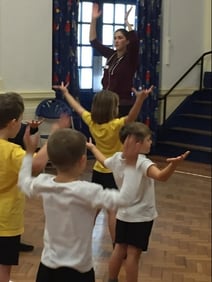 Throughout the process students create a highly personal arts portfolio. They reflect on and document their experiences using photography, their own artwork, film, reflective notes and commentary to evidence their progress and development across the arts. They include research into different art forms, creative practitioners and artists, information about arts organisations and local events. Their arts portfolios provide an opportunity for ongoing reflection and become a wonderful record of each student's journey and interest in the arts.
Throughout the process students create a highly personal arts portfolio. They reflect on and document their experiences using photography, their own artwork, film, reflective notes and commentary to evidence their progress and development across the arts. They include research into different art forms, creative practitioners and artists, information about arts organisations and local events. Their arts portfolios provide an opportunity for ongoing reflection and become a wonderful record of each student's journey and interest in the arts.
At the end of their degree, many students choose to take their portfolio along to job interviews; we know schools really like this as their portfolio is so unique, and it says a lot about the teacher they have become. It’s exciting to think that each student who successfully completes their Arts Award has the potential to have a significant impact, not just on the many children they will go on to teach, but on their colleagues and the school communities they join.
“The whole experience has encouraged me to become a creative teacher who provides a wide variety of different 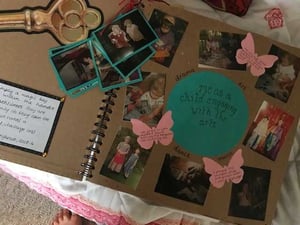 opportunities for children. I have developed an understanding of the need for children to understand all cultures and I have created a bank of teaching styles, activities and opportunities that I will most definitely be using in the future.” Student, Institute of Education, Winchester.
opportunities for children. I have developed an understanding of the need for children to understand all cultures and I have created a bank of teaching styles, activities and opportunities that I will most definitely be using in the future.” Student, Institute of Education, Winchester.
“By participating in the Arts Award module, I have gained so much knowledge and experience about why the arts are so important. This will influence my future practice…. I have really enjoyed the sessions and I believe that the creative arts are crucial in the social, emotional and personal development of children.” Student, Institute of Education, Winchester.
Related posts
BY: Guest Writer
BY: Guest Writer

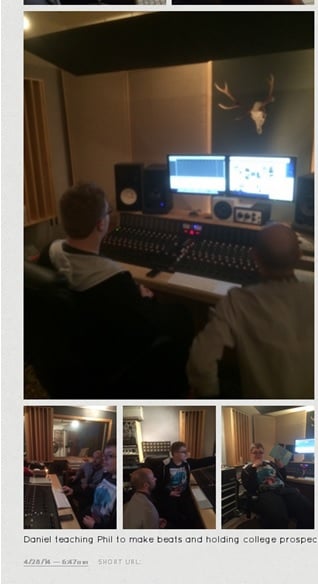
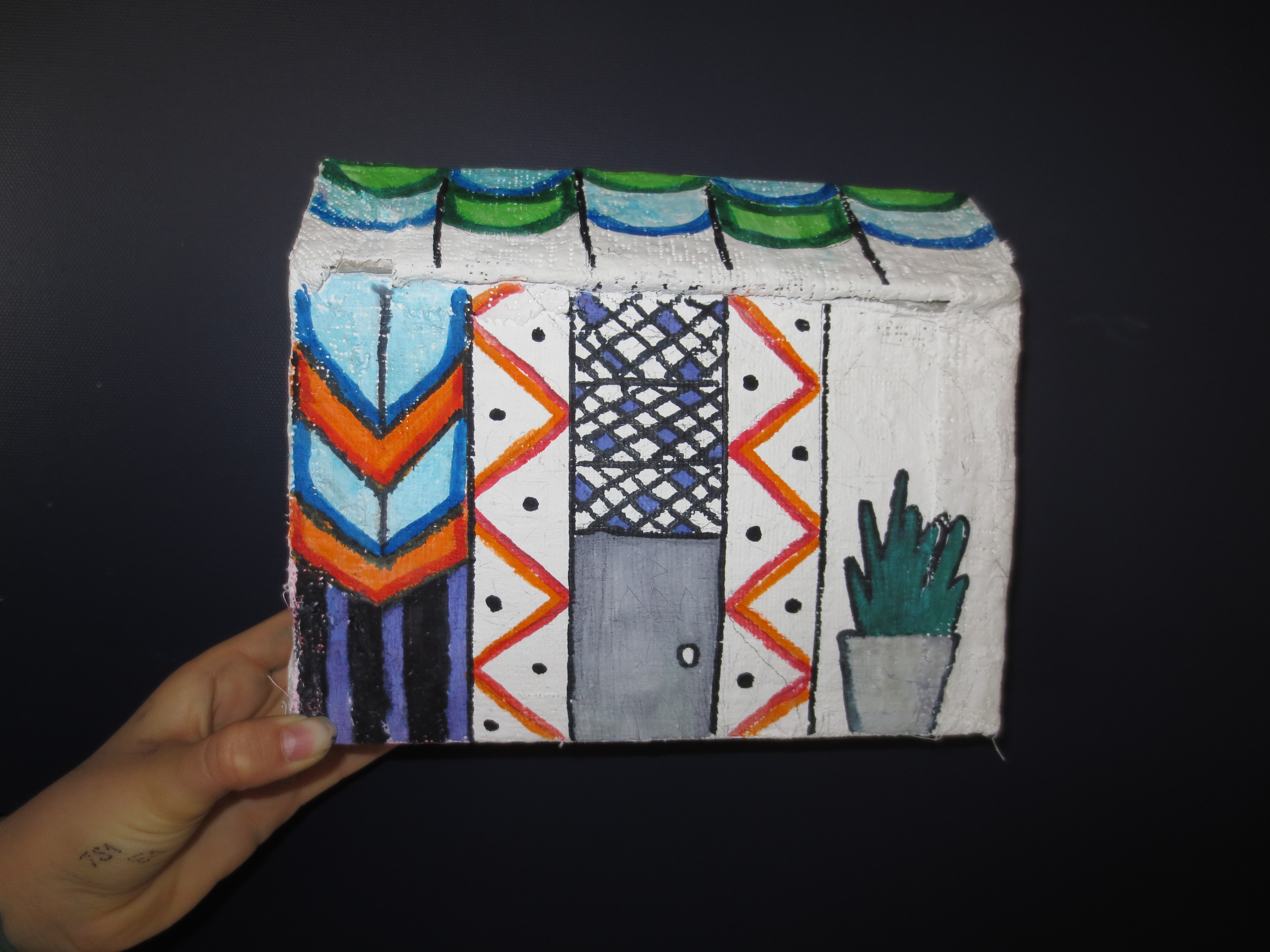
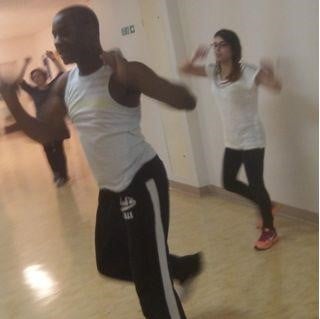
Comments & Replies